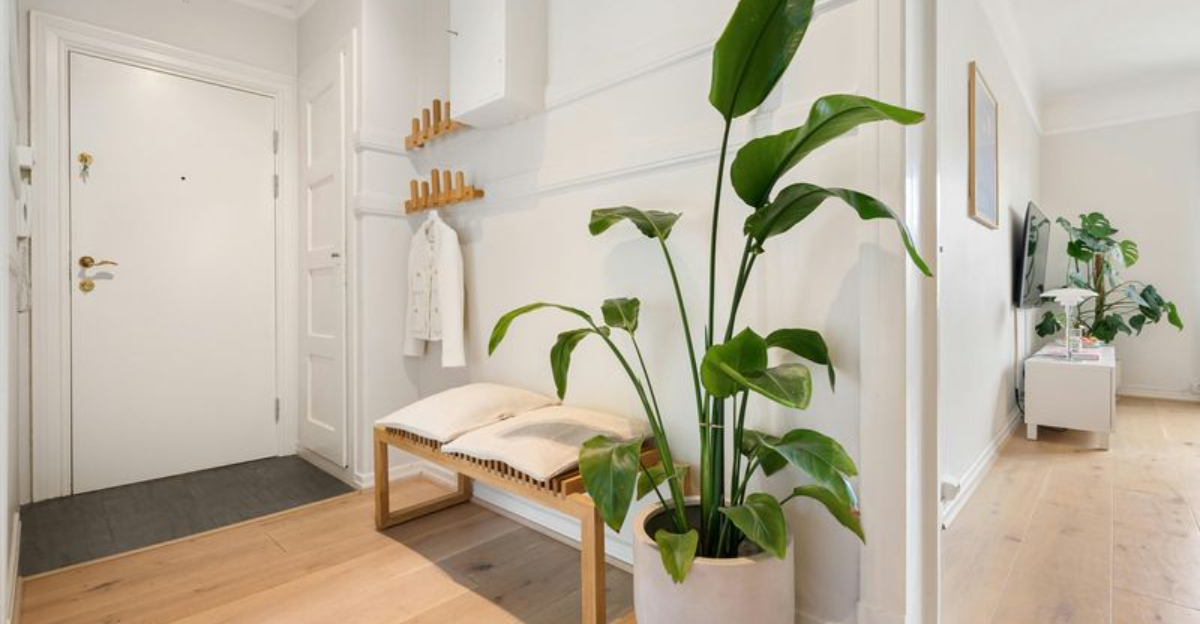Making guests feel comfortable in your home doesn’t require expensive renovations or designer furniture. Simple decorating touches can transform any space into a warm, inviting haven that puts visitors at ease the moment they walk through the door. Whether you’re hosting overnight guests or throwing a dinner party, thoughtful details show you care about their comfort and create lasting positive impressions.
1. Fresh Flowers in Key Spaces
Nothing says welcome quite like a burst of natural beauty greeting visitors at the entrance. Fresh blooms instantly brighten any room and send the message that you’ve prepared especially for their arrival.
Place arrangements in the entryway, guest bathroom, or bedroom where they’ll be noticed immediately. Even grocery store bouquets work wonders when displayed in attractive vases.
The subtle fragrance and vibrant colors create a sensory experience that feels luxurious yet personal. Flowers are nature’s way of making any space feel cared for and special, without requiring much effort or expense from you.
2. Soft Lighting Options Throughout
Harsh overhead lights can make guests feel like they’re in an interrogation room rather than a cozy home. Layered lighting with lamps, candles, and dimmers creates warmth that helps people relax naturally.
Position table lamps and floor lamps in conversation areas so guests aren’t squinting or sitting in shadows. Bedside lamps in guest rooms give visitors control over their own comfort.
Warm-toned bulbs mimic sunset glow and make skin tones look healthier, which subconsciously makes everyone feel better. Good lighting design isn’t about brightness—it’s about creating pockets of comfort where conversations flow easily.
3. Comfortable Seating Arrangements
Ever perched awkwardly on a stiff chair wishing you could sink into something softer? Your guests have too. Plush seating with supportive cushions invites people to settle in and stay awhile.
Arrange furniture to encourage conversation rather than everyone staring at the television. Add throw pillows for lumbar support and visual warmth.
If your seating feels firm, drape soft blankets over arms for instant coziness. The easier it is for guests to get comfortable physically, the more comfortable they’ll feel emotionally in your space. Quality seating shows you value their presence enough to prioritize their comfort.
4. Personal Touches in Guest Spaces
Hotels feel sterile because they lack personality. Your home should feel different—lived-in, warm, and thoughtfully curated for your visitor’s needs.
Stock guest rooms with basics like phone chargers, water carafes, and reading materials. A handwritten welcome note adds a heartfelt touch that technology can’t replicate.
Small details like local guidebooks, snacks, or fresh towels folded nicely show you’ve anticipated their needs before they had to ask. These gestures don’t cost much but communicate volumes about your hospitality. Guests remember how you made them feel, and personal touches create those memorable moments that distinguish your home from any accommodation.
5. Clear Pathways and Clutter-Free Zones
Imagine navigating an obstacle course just to reach the bathroom—not exactly relaxing, right? Clear, open pathways help guests move confidently through your home without anxiety about knocking things over.
Tackle high-traffic areas first: entryways, hallways, and bathrooms. Remove unnecessary items that create visual chaos or physical barriers.
A clutter-free environment signals organization and calm, helping visitors feel less overwhelmed. When guests don’t have to worry about bumping into piles or squeezing past furniture, they naturally relax. Think of it as removing friction from their experience—the smoother their movement, the more welcome they feel in your space.
6. Inviting Scents and Fresh Air
Scent triggers memory more powerfully than any other sense. Walk into a home filled with pleasant aromas, and you immediately feel more positive about the space and the people who live there.
Open windows before guests arrive to circulate fresh air. Light subtle candles or simmer cinnamon sticks on the stove for natural fragrance.
Avoid overpowering air fresheners that smell artificial and can trigger headaches. The goal is barely-there freshness that makes people breathe deeply and feel at ease. Even baking cookies before guests arrive creates an instant homey atmosphere that commercial products simply cannot duplicate authentically.
7. Thoughtful Temperature Control
Shivering under a thin blanket or sweating through dinner ruins any visit, no matter how beautiful your decor looks. Comfortable temperature might seem basic, but it’s fundamental to hospitality that many hosts overlook.
Set thermostats to neutral ranges before guests arrive—around 68-72 degrees works for most people. Keep extra blankets visible so chilly guests can help themselves.
If your home runs cold, add space heaters to guest areas. If it’s warm, position fans strategically. Asking guests if they’re comfortable shows attentiveness, but anticipating their needs before they must speak up demonstrates exceptional hosting. Physical comfort directly impacts emotional comfort.
8. Accessible Refreshment Station
There’s something awkward about asking where the glasses are when you’re thirsty in someone else’s home. An accessible refreshment area eliminates that discomfort and empowers guests to help themselves comfortably.
Set up a simple station with water, glasses, coffee supplies, and perhaps tea or snacks. Label cabinets if necessary so guests don’t have to search.
This small gesture communicates trust and makes your home feel less formal. When people can meet their own basic needs without asking permission, they relax significantly. It transforms them from cautious visitors into comfortable guests who feel genuinely at home in your space.








